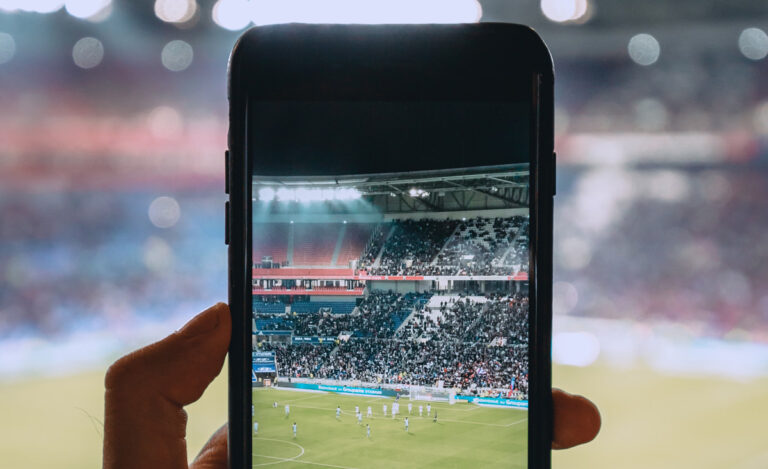Euro 2020: It’s not coming home but racism is. What can you do to help?

The Euro 2020 final happened last night and shortly after—if not right when it became clear England had lost—the team’s black players were subjected to horrible racist abuse once again. Jadon Sancho, Marcus Rashford and Bukayo Saka missed penalties in the 3 to 2 shootout loss to Italy and became the targets of disgusting attacks online.
As Saka, 19, stepped up to take the penalty, the pressure to perform could be felt through my television—the tension was palpable. It wasn’t just the pressure to perform as a player but as a black player. It’s the awareness that as a black person (or other person of colour) you are held at a higher, more impossible standard than your white counterparts. Your acceptance comes with conditions. You could sadly tell that Saka felt that. You must be perfect, you must be excellent, to be English. If you dare to ‘fail’ your very life is at risk—and your acceptance revoked.
Twitter user Michkeenah wrote, “it’s actually so mad to me that England loses a game and the first thing Black people and women have to think about is their safety. This country is a nightmare.” Another user, planetbrowngirl, wrote, “Please pay attention to the fact that the racial abuse towards Saka, Rashford and Sancho is coming from their team’s very own fans. Same fans who would’ve called them national heroes had they scored. Think about that and how the treatment of Black people is based on their performance.”
Gareth Southgate, England’s manager, was seen consoling Saka after the loss and stated that the racist abuse of players is “unforgivable.”
Prime Minister Boris Johnson also tweeted his condemnation of the abuse, “This England team deserved to be lauded as heroes, not racially abused on social media. Those responsible for this appalling abuse should be ashamed of themselves.” As they say, the fish rots from the head—so I’m not sure I believe you, Prime Minister. Many would argue—myself included—that Johnson and the Tory party have spent the last decade egging on this type of behaviour and rhetoric. In fact, they’re known to lead the pack.
I’ll just list a few examples, shall I? The UK government denied that systemic racism is real, has created voter suppression laws that would affect minority communities, ruled that foreign rough-sleepers would be deported, voted against protecting the NHS, created a point-based immigration system, backed a bill which would police peaceful protest, made defacing statues a punishable offence of 10 years, put forward a bill that aims to send asylum seekers to processing centres in Africa and Priti Patel even argued that England fans have the ‘right’ to boo players who take the knee. Do I even need to continue?
Conservative MP Natalie Elphicke was exposed earlier this morning for a text she sent to a Tory MP group chat following the game. Elphicke appallingly wrote, “they lost – would it be ungenerous to suggest Rashford should have spent more time perfecting his game and less time playing politics.” Let’s not forget that it was Rashford (and not our Prime Minister) who tried to combat child food hunger and fed thousands of children across the country while being a brilliant footballer. These black players carried us to the finals. Let’s not forget it.
You know what’s depressing? That’s just the tip of the iceberg. The violence that black people across this country face is soul destroying.
England’s Football Association (FA) released a statement in response to the racist abuse online stating, “The FA strongly condemns all forms of discrimination and is appalled by the online racism that has been aimed at some of our England players on social media.”
“We could not be clearer that anyone behind such disgusting behaviour is not welcome in following the team. We will do all we can to support the players affected while urging the toughest punishments possible for anyone responsible,” it continued. While there have been many statements being made about the racist abuse online and on the streets, little actual action has been taken by any authoritative bodies. In fact, it has been individuals online that have been taking it into their own hands.
get in girls, we’re spending the night reporting the disgusting comments on Saka’s Instagram
— Cassie (@Cassiesmyth) July 11, 2021
A swathe of people online have been independently investigating the people leaving racist abuse and tracking down their LinkedIn profiles in order to report their atrocious behaviour to their employers or place of employment. Writer and antiracism activist Maxine Williams gives us advice on how we can do the same. When you see a racist comment, click the profile and report it immediately. If you are able to locate the user’s real name, then try searching it on LinkedIn to find the necessary information needed to report their racist behaviour to their employer or to the police. Let’s rally around these players as much as we can.
View this post on Instagram
This isn’t a one of a kind, isolated event. Racism in this country and in football is ever present and infuriating. Where are the police when these football crowds form? Whether it’s a BLM protest, a Pride march or a vigil for Sarah Everard, the police come out in droves and yet when England fans are trashing Leicester Square there’s not an officer in sight. Why is it that the most aggressive displays of violence by England fans go unchecked? Why is it that people are still unable to visit loved ones in hospital or have more numbers at funerals yet over 60,000 can congregate to watch the footie? This country has a lot of self-reflection to do.




